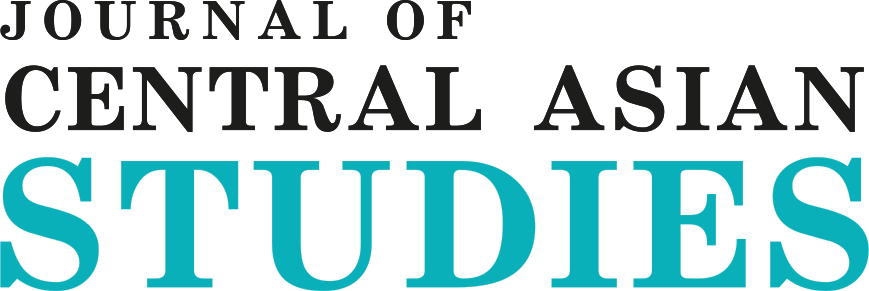Latin America and Central Asia in The Context of Global Political Tensions: Populism and Polarization
DOI:
https://doi.org/10.52536/2788-5909.2022-2.02Keywords:
Central Asia, COVID-19, Crisis of Party System, Geopolitics, Latin America, Left Turn and Democracy, Neoliberalism, Polarization, PopulismAbstract
The article analyzes the genesis of political regimes in Latin America and Central Asia, the Latin-American polarization during the period of waves of populism and its impact to Central Asian countries. In the twentieth century, the countries acutely experienced two waves of populism, which coincided with the historical periods of political transitions of the change of power, namely, the transition from oligarchy to mass politics, from authoritarian regimes to democracy, which subsequently created the solid ground for neoliberal reforms. The article notes the left-populist regimes and their anti-elitist orientation, and also analyzes that weak institutionalization, class orientation and a high level of polarization of left-wing populism after the consequences of COVID-19 will finally lead to an institutional crisis, a violation and lose of the balances and a straight shift to competitive authoritarianism in the future.
References
Malloy, J. (1977) Authoritarianism and Corporatism in Latin America: The Model
Pattern. Authoritarianism and Corporatism in Latin America Ed. by Malloy J.M. Pittsburgh: University of Pittsburgh Press. 529 p.
Hilton, S. (1975). Vargas and Brazilian Economic Development, 1930–1945: A Reappraisal of his Attitude Toward Industrialization and Planning. The Journal of Economic History, 35(4), 754-778. doi:10.1017/S0022050700073757
Marcelo, D. (1978). Towards a change in the economic paradigm through the
experience of developing countries. [Electronic resource] URL: https://file:///Users/ww/Downloads/boston-024.pdf (access date 21.12.21)
Raúl, L. (2006) The rise of ethno populism in Latin America [Electronic resource]
URL: https://www.vanderbilt.edu/lapop/bolivia/2004-ethnopopulism.pdf (access date 13.10.2021)
Weyland, K. (1996) Neopopulism and Neoliberalism in Latin America: Unexpected Affinities. Studies in Comparative International Development, no. 31 (3), p. 3-31.
Daniel, Z. (2020) The rapidly deteriorating quality of democracy in Latin America, [Electronic resource] URL:https://www.brookings.edu/blog/order-fromchaos/2020/02/28/the-rapidly-deteriorating-quality-of-democracy-in-latin-america/ (access date: 25.12.2021)
Global Economic Prospects, 2021. [Electronic resource] URL:https://thedocs.
worldbank.org/en/doc/600223300a3685fe68016a484ee867fb0350012021/original/Global-Economic-Prospects-June-2021.pdf (access date 23.12.2021)
Stokes, S. (2001) Mandates and Democracy. Neoliberalism by Surprise in Latin
America. Cambridge University Press. 220 p.
Roberts, K. (2003) Social Polarization and the Populist Resurgence in Venezuela.
Venezuelan Politics in the Chávez era. Class, Polarization and Conflict / Ellner S., Hellinger D. (eds.). Boulder: Lynne Rienner Publishers. p. 55-72
Dabagyan, E. (2007) Metodologicheskie osnovy izucheniya fenomena “levogo povorota” [Methodology of studying “Left Turn”]: Sudarev, V. (ed.). “Leviy povorot” v Latinskoy Amerike [“Left Turn” in Latin America]. Moscow: Institut Latinskoy Ameriki. 216 p.
Central Asia: a political history from the 19th century to present. [Electronic resource] URL: https://asiasociety.org/central-asia-political-history-19th-century-present (access date 2.02.2022)
Societal change afoot in Central Asia, 2019. [Electronic resource] URL: https://carnegieendowment.org/2019/10/18/societal-change-afoot-in-central-asiapub-80086 (access date 30.01.2022)
The political process of Central Asia and the system question, 2019. [Electronic
resource] URL: https://ifsh.de/file-CORE/documents/yearbook/english/11/Seiferten.pdf (access date 14.02.2022)
Downloads
Published
Issue
Section
License
Copyright (c) 2022 Kulumzhanova A., Ospanova A.

This work is licensed under a Creative Commons Attribution 4.0 International License.










 Open content is licensed under the CC-BY
Open content is licensed under the CC-BY 